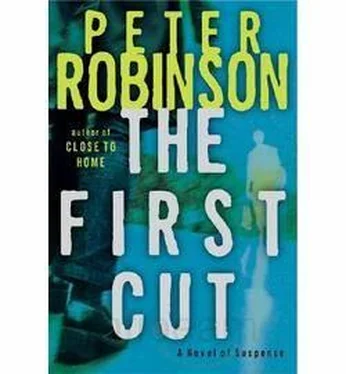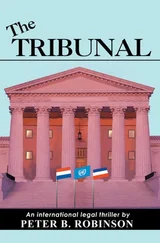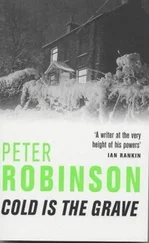They prepared themselves for bed and drew the curtains. Kirsten watched Sarah pull her T-shirt over her head and struggle with her tight jeans, then stand there naked and unselfconsciously brush her blond hair in front of the mirror. Her breasts bounced lightly with the motion of her arm, and below her flat stomach, the spun-gold hair between her legs caught the light.
Kirsten undressed last, in the dark, so that Sarah couldn’t see her scars, and when she slipped between the crisp sheets, she found herself staying as close to the edge of the bed as possible to avoid any unconscious contact.
But she needn’t have worried. Sarah lay with her face turned to the wall below the window, and soon her breathing settled into a slow, regular pattern. Kirsten listened for a while, feeling slightly dizzy and nauseated and cursing herself for almost telling Sarah everything she knew, not to mention what she intended to do about it. Eventually, she drifted off to sleep and dreamed of Martha Browne, that unknown woman in black swinging back and forth at the end of a rope in the misty Dorchester rain over a hundred years ago.
The next day, Sarah went into the bookshop, and Kirsten spent the morning revisiting her old campus haunts: the coffee lounge where she had met friends between lectures, the library where she had worked so hard for the final exams. She even wandered into an empty lecture theater and imagined Professor Simpkins droning on about Milton ’s Areopagitica.
Though she had avoided it on her way over, taking the roads instead, Kirsten walked back through the park. As her feet followed the familiar tarmac path through the trees she felt nothing at all, but when she reached the lion, its head still spray-painted blue and the red graffiti still scrawled all over its body, her hands started shaking. Unable to stop herself, she walked over to the sculpture.
It was a little after twelve. Children played on the swings and seesaw nearby. The clack of bowls came from the green behind the low hedge, and one or two people sprawled out on the grass, listening to portable cassettes or reading. But Kirsten still felt extreme unease, as if she had somehow stumbled on a taboo place, an evil spot shunned by natives. She couldn’t help herself when she sat astride the lion, drawing amused glances from two students playing cards on the grass nearby. It all happened so quickly. The fishy smell began to suffocate her and the world darkened at the corners of her vision. Then she saw him and heard his raspy voice and saw the blade flash in the moonlight. She leaped off and hurried on her way, trembling.
As she walked on down the avenue of trees, she cursed herself for giving in to fear. She would need all the courage and strength she could get for what she had to do, and jumping at shadows was a poor start. Still, she told herself, somehow shadows were more frightening to her now than substance. That must be a good sign. It was time to go.
First she went back to the flat and left a note for Sarah, then she went into town. After shopping for one or two essentials she needed for her trip, she headed for the bus station. About three hours later, Martha Browne arrived in Whitby on a clear afternoon in early September, convinced of her destiny.
Like some shadowy female figure out of Hardy standing on a blasted heath waiting for her lover, Sue stood on the waste land in the thickening darkness and watched Greg Eastcote shut his garden gate and take the path toward her.
Before he had got far, while Sue was still about sixty yards ahead, she turned her back to him and started walking along the rough path. When she got to the main road, there were few people about, but the street was well lit. Sensing him behind her, rather than seeing him, Sue continued along until she had passed the intersection with Bridge Street, where the road narrowed. This was the tourist area again, the cobbled street of gift shops, the Monk’s Haven, the Black Horse. At this time of evening, though, all the shops were closed. Polished jet gleamed in its gold-and-silver settings in the windows, and the enamel trays that had been covered with coffee- or mint-flavored fudge all day lay empty. All the happy holiday families were back at the guesthouses watching television, or they had managed to put the kids to bed and gone out to the pub for a quiet pint alone. Only lovers and vampires walked the streets.
Hands in the pockets of her windbreaker, Sue walked on purposefully. She had known where she was heading all along, she realized, but she had known it in her instinct and her muscles, not in her conscious mind. He was still behind her, moving more cautiously now, not hurrying to catch up with her. Perhaps he was getting worried. When she got to the steps, she turned and started climbing, counting by habit as she went. It was dark and deserted up the hill, with no streetlights to light her way. But St. Mary’s was floodlit, like a beacon, and high above the church a waning three-quarter moon shone in the clear sky, surrounded by stars. At the top of the hundred and ninety-ninth step, where Caedmon’s Cross stood silhouetted against the bright sand-colored church, Sue turned through the graveyard of nameless stones. She could tell he was following her, that he would soon appear at the top and look around to see which way she had gone. She slowed down. She didn’t want to disappoint him.
In the light of St. Mary’s, she followed the path through the graves around the seaward side of the church and across the deserted car park, where the world turned dark again. She found the coast path and stopped for a moment by the gate. Yes, he was there, just coming out of the cemetery and looking in her direction.
She turned back to the path and hurried on. She was high on the cliff now, the sheer part known as the Scar, walking in the general direction of Robin Hood’s Bay. The raised boardwalk underfoot creaked in places, and she had to slow down in case of missing boards. A barbed-wire fence came between the path and the drop, but it had collapsed here and there where erosion had eaten the rock away.
Now that she was further away from the church’s interfering floodlights, the moonlight shone more clearly, dusting the grass on one side and the sea on the other with its ghostly silver light. Sue thought she might lead him as far as Saltwick Nab and down the steps, out toward the knuckled rocks that pointed to the sea. But he was getting closer. She could hear his footsteps on the boardwalk, and when she half turned her head, she could see him outlined faintly by the moonlight.
He was walking faster. She would never make it that far before he caught up with her, and she didn’t intend him to attack her from behind. As she walked, she reached her hand into her shoulder bag and felt for the paperweight. There it was, smooth and heavy against her sweating palm.
He was almost so close now that she could hear his labored breathing. The climb up the steps must have tired him. When she could bear it no longer, Sue stopped abruptly and turned to face him. In the moonlight, she could just about make out his features: the low, dark brow, wide, grim-set mouth and the eyes glittering like stars reflected on the water’s surface. He had stopped, too. Only about five yards lay between them, and at first nobody said a word; neither of them even seemed to be breathing. Sue found that she was shaking. Suddenly, she remembered with perfect clarity all the pain she had suffered the last time she had seen this ghostly face in the moonlight.
Finally, she found the courage to speak, “Do you remember me?”
“You,” he said, in that familiar raspy whisper. “You were in my house.”
“Yes,” she said, gaining strength as they talked, feeling the hardness of the solid glass in her hand.
Читать дальше












